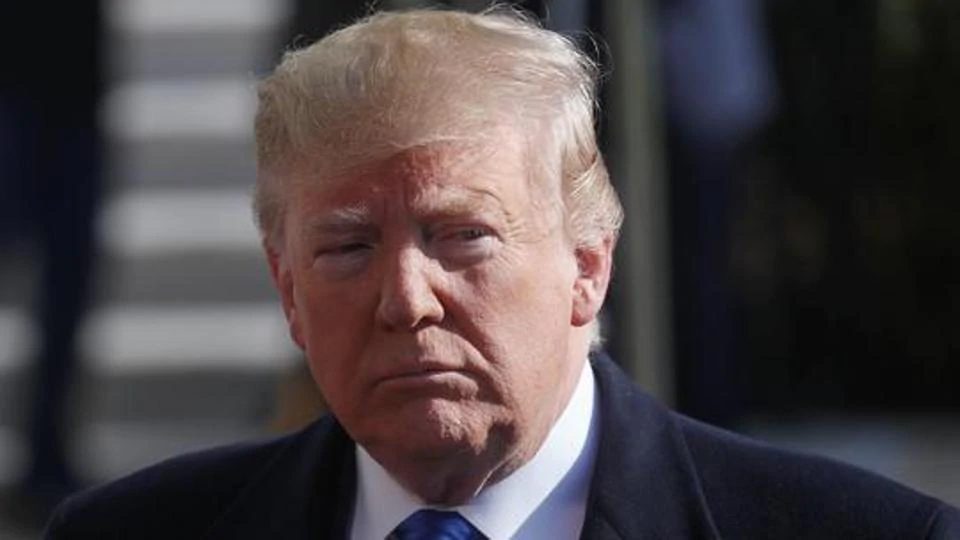Richard Spencer, who was fired at Navy secretary for his handling of a SEAL war crimes case championed by President Donald Trump, wrote Wednesday that the commander in chief “has very little understanding” of how the American military works.
The extraordinary accusation came in an opinion piece published on The Washington Post’s website Wednesday evening, three days after he was fired. Spencer called Trump’s intervention in the case of Navy Chief Petty Officer Edward Gallagher “shocking” and unprecedented.
Spencer was fired Sunday by Defense Secretary Mark Esper for working a private deal with the White House to ensure that Gallagher be allowed to retire without losing his SEAL status.
In his Post article, Spencer acknowledged his mistake, but also asserted that Trump’s actions were detrimental to the military.
Spencer said Trump had involved himself in the Gallagher case “almost from the start,” by telephoning Spencer even before the SEAL’s court martial started to ask that Gallagher be moved out of confinement at a Navy brig. Spencer said he resisted Trump because the presiding judge had decided that confinement was important. Nonetheless, Trump ordered Spencer to transfer Gallagher from the brig to the equivalent of an enlisted barracks.
Spencer said he believes Trump’s interest in the case stemmed partly from the way Gallagher’s defense lawyers and others “worked to keep it front and center in the media.”
After Gallagher was acquitted of most charges but convicted of posing with the corpse of an Islamic State extremist in Iraq, he submitted his request to retire. In Spencer’s telling, that raised three questions for the Navy, including whether Gallagher should be allowed to retire at his current rank. The military jury had said he should be demoted.
Trump, who had tweeted support for Gallagher and stated that his case had been “handled very badly from the beginning,” short-circuited the Navy’s administrative review of Gallagher’s status by ordering Spencer to restore Gallagher’s rank.
“This was a shocking and unprecedented intervention in a low-level review,” Spencer wrote. “It was also a reminder that the president has very little understanding of what it means to be in the military, to fight ethically or to be governed by a uniform set of rules and practices.”
Last week, Trump tweeted that Gallagher must be allowed to keep his Trident pin, the medal that designates a SEAL member. The Navy had planned to let an administrative board review the question starting Monday, but eventually Esper decided to stop that process and let Gallagher retire as a SEAL, as Trump had ordered.
Earlier Wednesday, the Navy announced that it had canceled the peer-review boards for three SEAL officers who supervised Gallagher during the Iraq deployment that gave rise to the war crimes charges.
Acting Navy Secretary Thomas Modly said the case was becoming a distraction for the commando force, known for its quiet professionalism but recently roiled with controversy.
The decision was the latest twist in the Gallagher matter. Trump has made no mention of the three SEAL officers also ordered to be reviewed. All three had overseen Gallagher during his 2017 deployment to Iraq.
But Modly said there were better ways to address any “failures in conduct, performance, judgment, or professionalism exhibited by these officers.”
He directed the chief of naval operations to end the review process for Lt. Cmdr. Robert Breisch, Lt. Jacob Portier and Lt. Thomas MacNeil.
“The United States Navy, and the Naval Special Warfare Community specifically, have dangerous and important work to do,” Modly said in a statement. “In my judgment, neither deserves the continued distraction and negative attention that recent events have evoked.”
Modly said his decision should not be interpreted as loosening the standards he expects of SEALs. He said ongoing efforts will continue to address problems within the SEAL community, which has had numerous allegations of misconduct in recent months.
“Navy uniformed leaders have my full confidence that they will continue to address challenging cultural issues within the Naval Special Warfare community, instill good order and discipline, and enforce the very highest professional standards we expect from every member of that community,” he said.
Portier was Gallagher’s platoon commander and was charged with failing to report the killing of the captive. He denied the charges and they were dropped after the jury acquitted Gallagher of murder.
Portier’s attorney, Jeremiah Sullivan, said Portier was happy to learn he would be allowed to keep his trident, a pin designating SEAL status.
“Lt. Portier is extremely grateful for the unwavering support of President Trump,” Sullivan said.
Attorneys for Breisch and MacNeil did not immediately respond to requests for comment.


